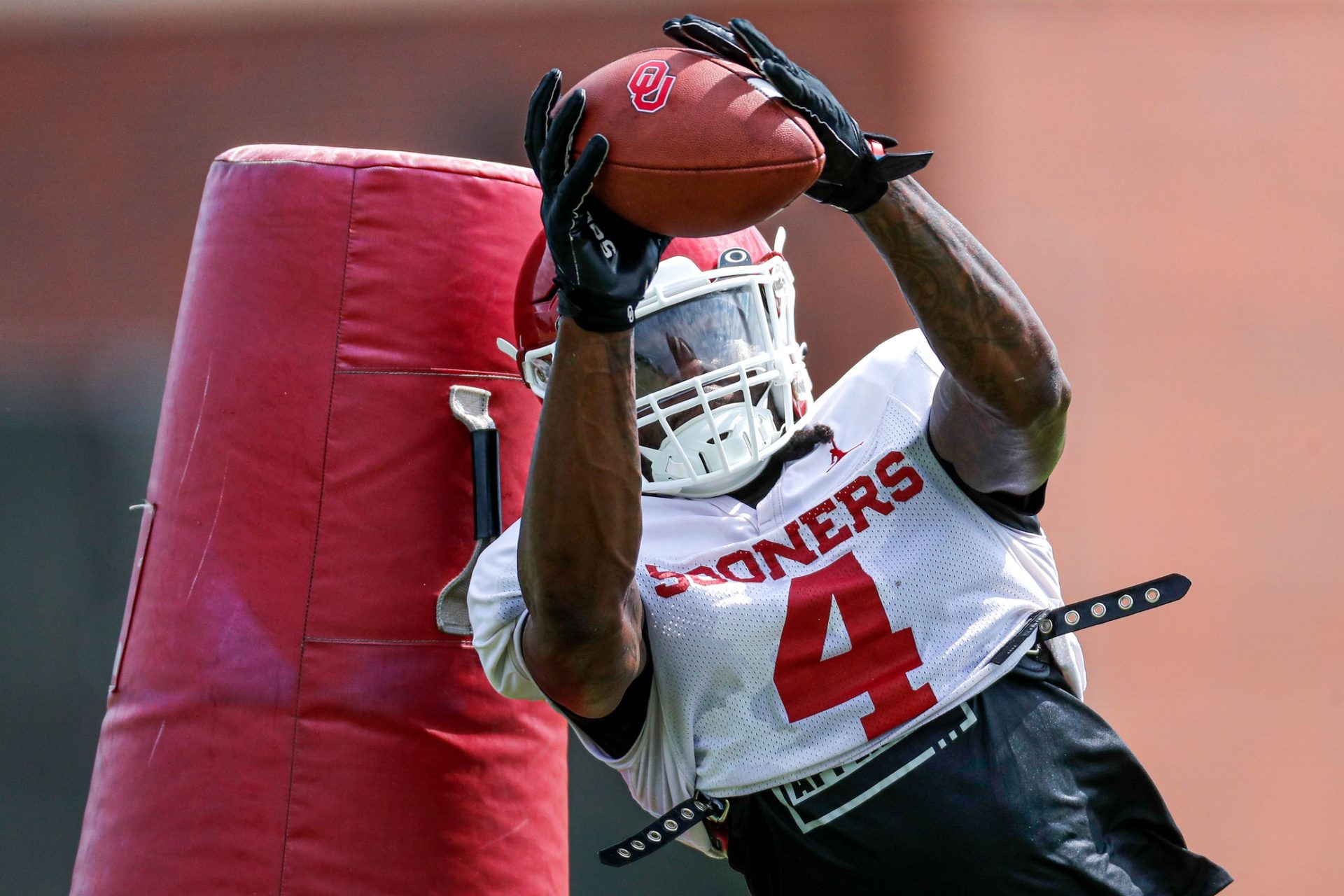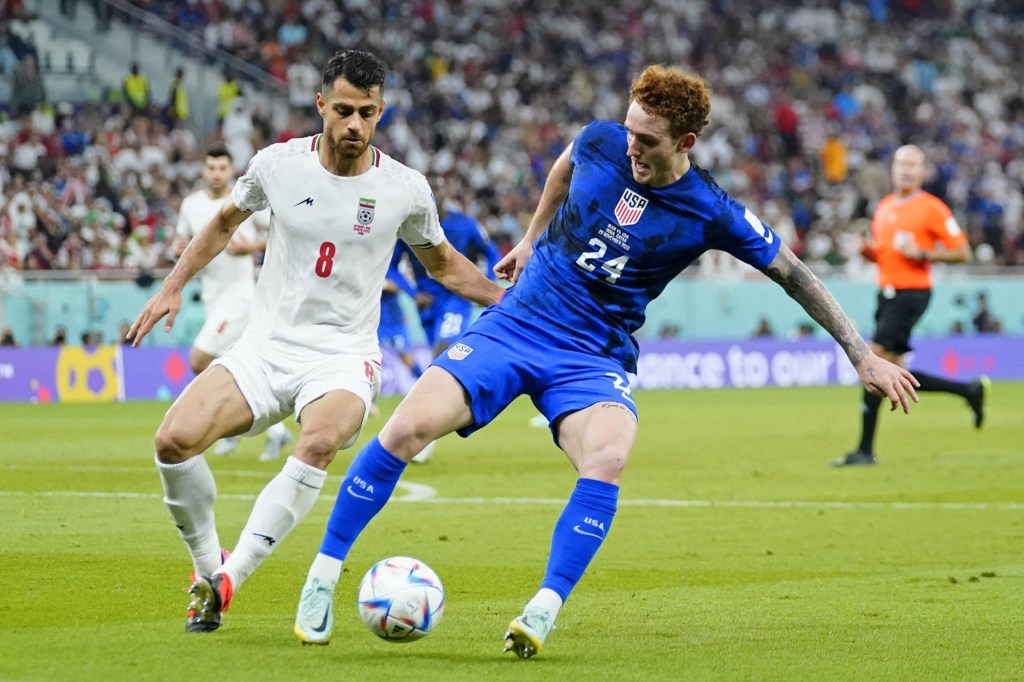In the federal court battle over NCAA eligibility rules, the NCAA appears to be losing in one specific category: junior college.
On Wednesday, a federal judge granted four West Virginia football players extra eligibility to play for the Mountaineers this season, ruling that the years they played in JUCO shouldn’t count toward NCAA eligibility.
Jimmori Robinson, Jeffrey Weimer, Tye Edwards, and Justin Harrington all played at least one full season of junior college before transferring to various NCAA institutions—and found themselves together at West Virginia this summer without any remaining eligibility. On Aug. 1, they became the latest group of athletes to sue the NCAA on antitrust grounds, arguing that its rule stating junior college play counts toward NCAA eligibility violates federal antitrust laws—and that they shouldn’t count toward the five-year eligibility completion clock. The judge also found that the rules give NCAA schools an unfair advantage in recruiting competition over non-NCAA institutions, because they force players to push for NCAA opportunities so they don’t exhaust future eligibility elsewhere.
The players were granted a temporary restraining order and preliminary injunction to play this season without fear that the NCAA could punish them later if the ruling is ultimately overturned.
“The Court is not endorsing unlimited eligibility across multiple associations,” West Virginia District Court judge John Preston Bailey wrote in a 67-page opinion. “Rather, the Court finds that time spent competing at a JUCO—an institution outside the NCAA’s direct governance—should not count against a student-athlete’s NCAA eligibility. The eligibility ‘clock’ should begin only when the student-athlete enrolls at an NCAA-member institution, consistent with the principle that the NCAA’s rules should not retroactively penalize participation in non-NCAA competition.”
The NCAA issued a fiery statement opposing the ruling, saying it “will lead to high school students losing opportunities to compete in college athletics,” presumably arguing that if more players can stay in college longer, there will be fewer roster spots for incoming freshmen. The NCAA also argues that “it erodes the academic standards that have for decades ensured student-athletes obtained an education.”
A Series of NCAA Challenges
As of last fall, the NCAA had a few core eligibility rules: Players could only compete in four full seasons that had to be completed within five years. They could receive certain waivers to make some seasons not count, like if they redshirted or played during the season impacted by the COVID pandemic. But otherwise, seasons played in lower NCAA divisions, and even non-NCAA sports including NAIA and junior college, counted toward their eligibility.
Those rules began to be challenged last fall, when Vanderbilt quarterback Diego Pavia sued the NCAA over the fact that his years playing JUCO football counted against his eligibility. He won—and a flood of lawsuits challenging eligibility rules poured into federal courts across the country.
There have been more than 30 cases since last October.
Players have argued that in the NIL (name, image, and likeness) era, eligibility rules are “commercial in nature,” and therefore subject to antitrust law, because they potentially restrict players’ ability to earn money if they can’t play for a number of seasons. And, as a result, they unreasonably restrict trade.
Judges presiding over the 30-plus lawsuits aren’t unanimous in their views—earlier this week, a federal judge in California denied preliminary injunctions to USC offensive lineman DJ Wingfield and UCLA wide receiver Kaedin Robinson over the five-year rule. Bailey noted in his decision that some other district courts have looked at the same question about junior college eligibility and denied preliminary injunctions to allow players to compete this season—like the two different federal judges who denied preliminary injunctions sought by baseball players.
Judges have also split on other aspects of eligibility. Tennessee basketball player Zakai Zeigler, who exhausted all four years of full eligibility at the NCAA Division I level over a span of five years, asked a federal court to allow him to play a fifth during a six-year span—potentially upending both core principles of the NCAA’s current rules. Zeigler’s motion for a preliminary injunction was denied in June. (He’ll continue to seek damages over lost NIL earnings.)
In the grand scheme of NCAA eligibility policy, even these NCAA wins may not ultimately protect the governing body. “The biggest differentiating factor is whether courts are finding the rules to be ‘commercial’ or not,” Boise State law professor Sam Ehrlich, who has followed all lawsuits closely in his college sports litigation tracker, told FOS recently. “If they’re not commercial in nature, there’s no antitrust applicability, so that’s a big deal for the NCAA.”
‘Circuit Split’
The various rulings are setting up the potential for a “circuit split,” where two federal appeals courts issue conflicting rulings on one subject. In that case, the Supreme Court may be willing to take up the issue. The NCAA is currently appealing the Pavia ruling, for example.
“With today’s decision, the case law on this issue now reflects a 8–4 split as to whether participation at a junior college begins a student-athlete’s eligibility clock,” Bailey wrote. That ruling will stand “until this Court receives guidance from the Supreme Court of the United States or the Fourth Circuit.”
Meanwhile, the NCAA has been lobbying for a federal law that would grant it antitrust exemptions—including the ability to set its own eligibility rules—to shield it from such lawsuits. The SCORE Act, a bill that includes many of the provisions favored by the NCAA, will be voted on in the House soon; but even if it passes the House, it could die in the Senate. The NCAA reiterated in its statement Wednesday that it hopes Congress will act. “The patchwork of state laws and differing court opinions are why partnering with Congress is essential to provide stability for all college athletes,” it said in a statement.





![[Subscription Customers Only] Jun 15, 2025; Seattle, Washington, USA; Botafogo owner John Textor inside the stadium before the match during a group stage match of the 2025 FIFA Club World Cup at Lumen Field.](https://frontofficesports.com/wp-content/uploads/2026/02/USATSI_26465842_168416386_lowres-scaled.jpg?quality=100&w=1024)
![[Subscription Customers Only] Jul 13, 2025; East Rutherford, New Jersey, USA; Chelsea FC midfielder Cole Palmer (10) celebrates winning the final of the 2025 FIFA Club World Cup at MetLife Stadium](https://frontofficesports.com/wp-content/uploads/2026/02/USATSI_26636703-scaled-e1770932227605.jpg?quality=100&w=1024)










